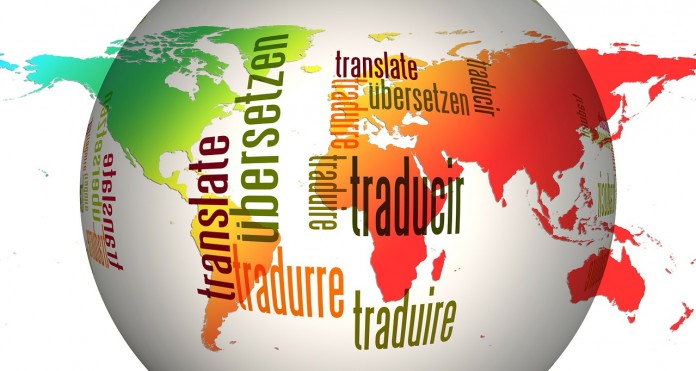We’ve all seen them: eyebrow-raising “translations” that leave you either shaking your head or slapping your knee. Just ask Google and you’ll find countless examples such as a no smoking sign in Israel that says “violators will be peralized” (yes, it’s even misspelled) or a bilingual road sign in Wales telling Welsh-speaking truck drivers: “I am not in the office at the moment. Send any work to be translated.”
While blunders like these make for great laughs, mistranslations can have far more serious consequences on your company’s image and really stick you where it hurts—your pocketbook.
Imagine the money you would spend to completely rebrand yourself if the translation of your witty, well-thought-out tagline left your Spanish-speaking customers scratching their heads. And how much would it cost for a PR campaign to explain why the catchy slogan for your brand-new product launch was translated into something that makes people squirm?
Now, if bad for business weren’t bad enough, how about life-threatening?
Medical professionals certainly understand how critical getting lost in translation can be. One wrong word, even in a non-medical text, can lead to illness or misdiagnosis. Picture having to recall millions of cans of baby formula because the instructions, translated from English, were misleading and could have sickened or even killed infants.
Getting lost
Have you ever wondered how translations go astray? One reason is a general lack of appreciation for the importance of professional translation and interpreting. But that’s not surprising. The road to getting translation right is, in fact, congested with many common misconceptions. Think of them as billboards that constantly distract and confuse: “Everybody speaks English now. You don’t need an interpreter or a translator!” “Your coworker knows Spanish. Have her do it!” “Just run it through Google Translate!”
It’s not that there is no truth to these notions. Many people do speak English, so you probably won’t need a professional interpreter on your next family vacation. And if your colleague speaks Spanish, by all means put her skills to use. Even free online translation tools have their place: Browsing foreign language websites is a great example. The trouble is that when it comes to your business—where your company’s reputation and even legal liability come into play—blindly trusting your instinct to dismiss the importance of a solid, professional translation process will lead you down a road that ends in costly embarrassment and more.
Getting it right
Still not convinced? Let’s clear up four of the most common and distracting misconceptions so you can refocus on the road to great translation.
- Everybody speaks English now. Why do I even need an interpreter or translator?
In fact, only 17% of the world’s population speaks English natively. Non-native speakers can easily misunderstand, misconstrue or completely miss the fine points of your message. Wit and persuasion can fall flat.
Research shows that when people spend their own money, they want to use their own language. Don’t you? International players know this already. That’s why so many commercial websites around the world are professionally translated and updated in multiple languages. It’s just good business sense.
- My coworker knows Spanish. Why not just have her do the translation/interpreting?
Knowing two languages doesn’t make you a translator or interpreter, just like knowing how to sing doesn’t make you an opera star.
Here’s the problem: many bilingual people overestimate their skills. Even when bilinguals are fluent in both languages, they aren’t always good at moving information and emotion across the language and cultural barrier. Often, relying on an amateur is a waste of human and financial resources.
Professional translators and interpreters can transfer complex ideas—technical, legal, financial, and more—accurately between languages and cultures. Professionals also have specialized terminology and subject-area knowledge, and they know how to choose the most appropriate solution when a word has many possible translations. All of this takes considerable experience and top-notch writing skills.
- Can’t I just use a free online translation tool?
The short answer is, “No.” A computer simply cannot comprehend all the nuances of language. It cannot interpret the meaning of a text. It can only read the words and translate them based on dictionaries, databases or other algorithms. You cannot ask clarifying questions of these tools or explain the context of your document to them. And there may be confidentiality issues at stake when you upload your text to a free site.
You can’t afford to risk your image, liability and reputation. Services like Google and Bing might help when you need to get the gist of a document quickly and when accuracy isn’t important. But if you use them to translate something into a language you don’t speak, you’ll have no idea what the outcome is and where the errors are.
- Aren’t computers replacing human translators?
Interestingly enough, since free online translation services have been around, the market for professional translation and interpreting has actually increased. This isn’t surprising: as Google and Bing open the door to global markets, users often discover just how important translation is—and realize that they have sophisticated language needs that only human professionals can meet. Machine translation is a growing industry, but even then, the output needs to be edited by (human) professionals to eliminate errors.
Don’t get lost
Getting a translation wrong can hurt your bottom line, ruin your image and even cost lives. Getting it right can be as simple as understanding the need for professional translation and interpreting—the roadmap that keeps you from getting lost—and knowing how to screen out the misleading signs along the way. So whether you’re translating a multimillion-dollar advertising campaign, an employee safety manual, or information for your state government, consult a professional. That way you’ll be sure you’re keeping your eyes on the road each and every time.
Find a Home-Based Business to Start-Up >>> Hundreds of Business Listings.
















































